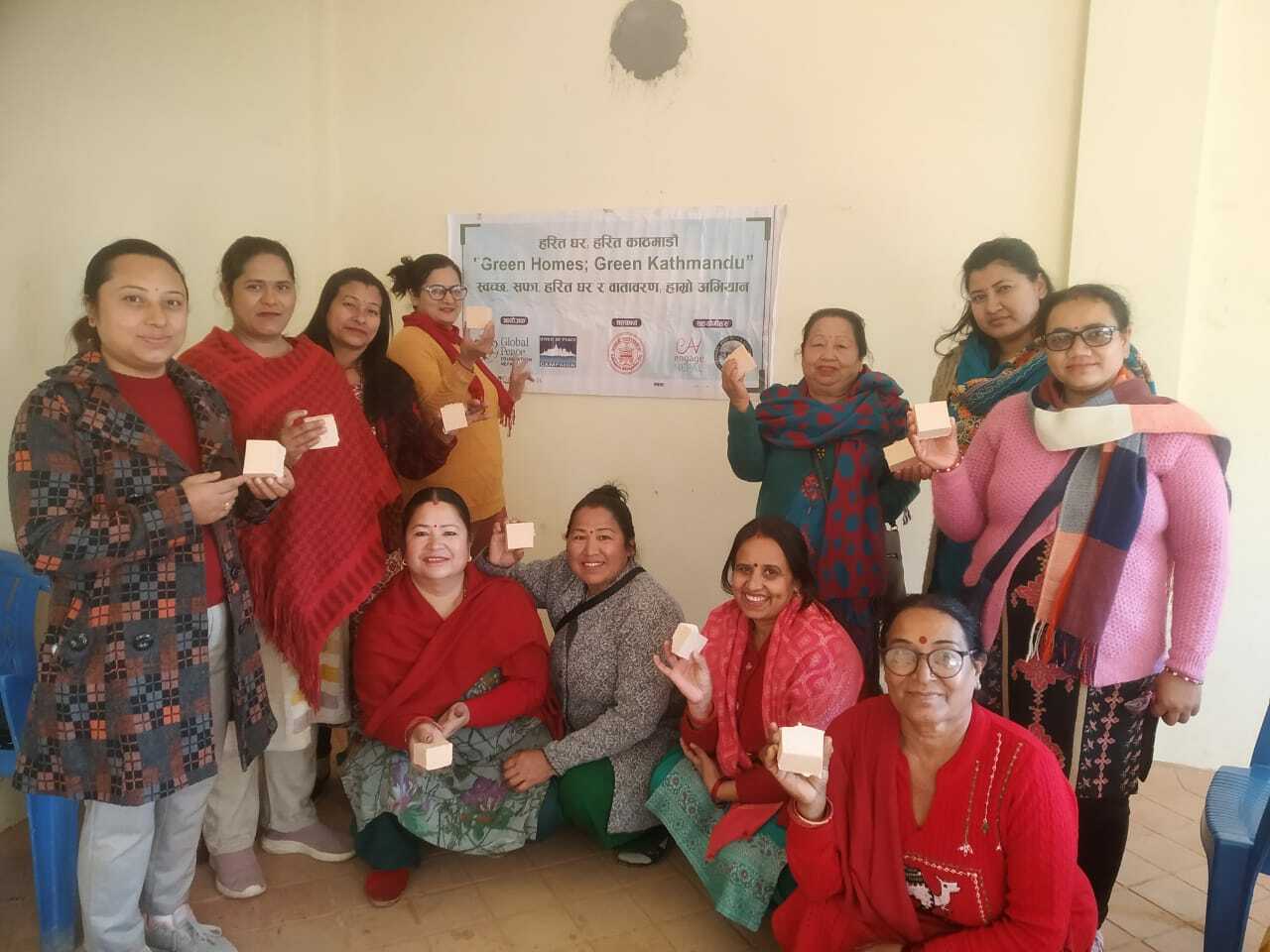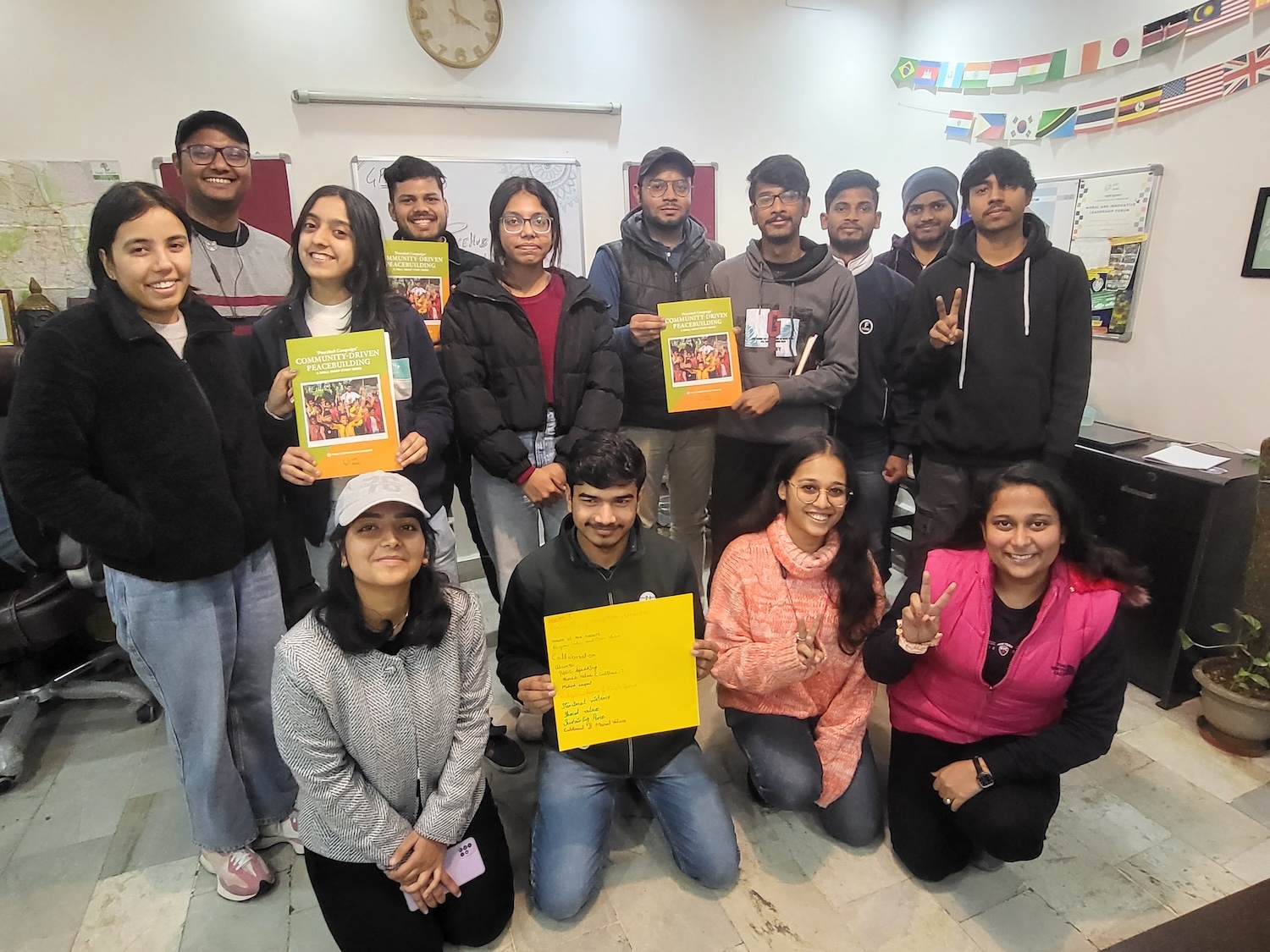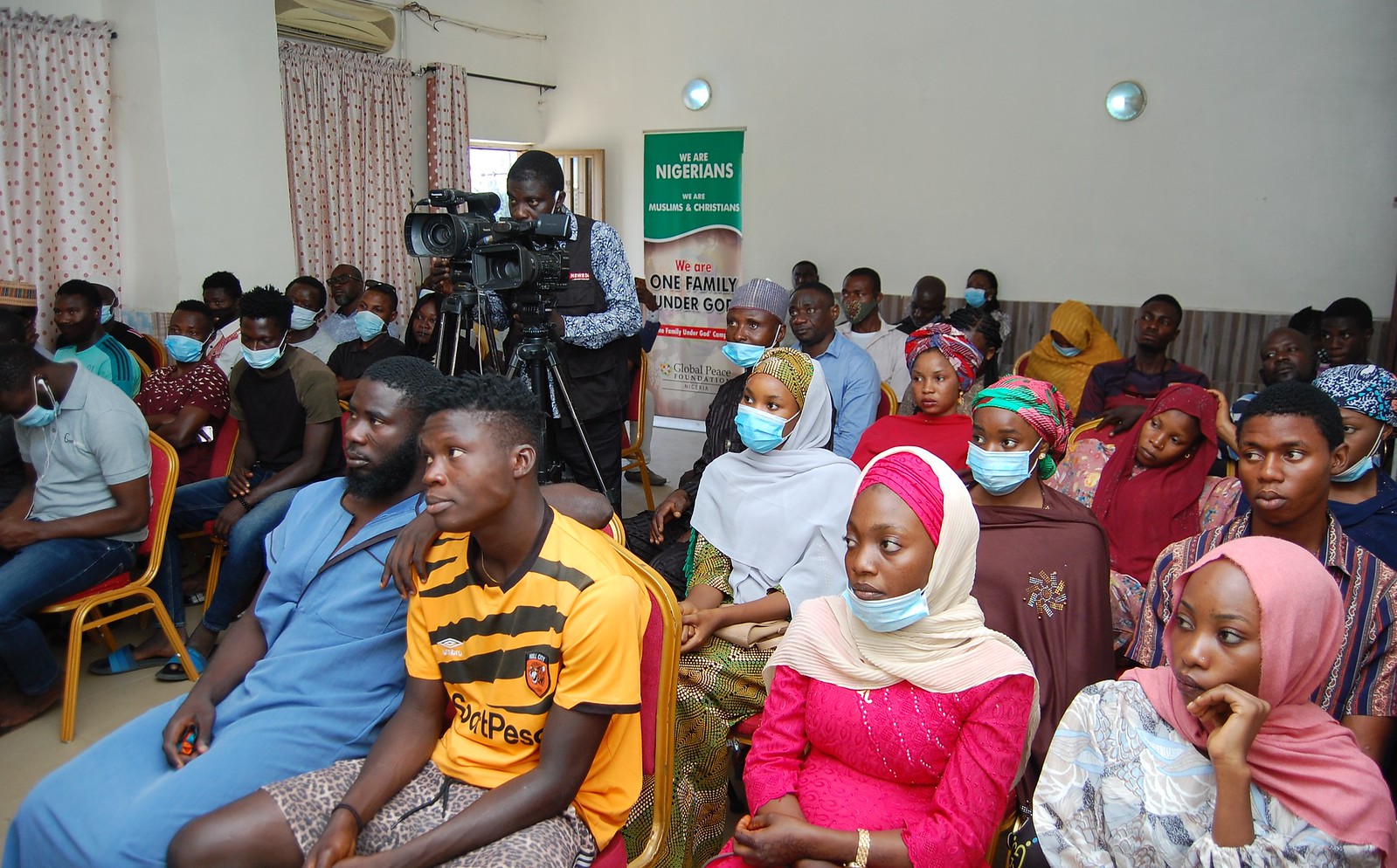
A GPF youth forum on peacebuilding in Abuja, Nigeria’s capital, in 2021.
Multi-party elections and constitutional democratic systems have emerged as the prevailing model of governance in much of post-colonial Africa. Yet economic inequities, political exploitation of ethnic rivalries, and repression in resolving election disputes have led to growing election-related violence across the continent. Between 2011 and 2017, over 100 elections were held in 44 African countries, with almost all elections witnessing violence during some stages according to a 2018 report by the Wilson Center.
The Global Peace Foundation has advanced grassroots efforts to bridge political and ethnic divisions and engage youth in regions witnessing some of the worst election-related violence in Kenya and Nigeria. On March 29, 2022, GPF hosted a virtual forum, “Empowering Youth Engagement for Peaceful Elections: Raising Voices for Democratic Participation,” to examine root causes and solutions to election-related violence.
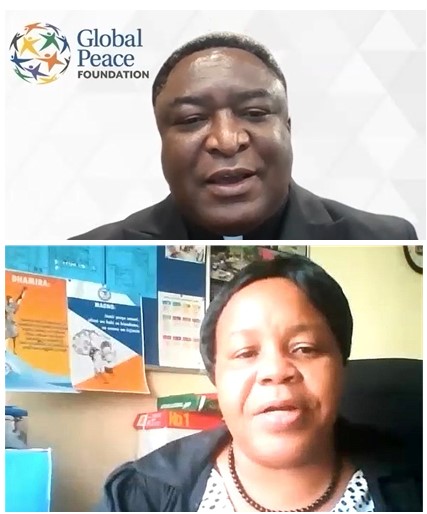
Above: forum moderator Rev. Fr. Canice Enyiaka; below: Gladness Hemedi Munuo
“Election violence can undo years of peacebuilding and development work and threaten democratic stability,” said forum moderator Rev. Fr. Canice Enyiaka, International Program Development Specialist for the Global Peace Foundation. “The spread of misinformation and hate speech has remained one of the most common forms of political incitement.”
Danjuma Dawop, a policy chief at the USAID-funded Peace Action for Rapid and Transformative Nigerian Early Response (PARTNER) at Mercy Corps, described efforts to mitigate election-related violence in nine Nigerian states. “We know that old people don’t perpetrate violence,” Dawop observed. “Most times it is youth who have grievances, exclusion from decision making, unemployment, ignorance, and alignment with their group.”
Politicians exploit these grievances by saying opposition candidates are your “enemy” and are responsible for your grievances. “Youth listen and if the election in not going the way they want they resort to violence, sometimes with the instigation of the politicians themselves,” Dawop said.
“When youth are politically educated, politically sensitized, politically enlightened, the challenges we see now will no longer disrupt the process.”
Social media also drives election violence, working as an echo chamber amplifying a certain narrative, often with misinformation, and stigmatizing certain groups. Dawop said PARTNER engage youth to counter disinformation on social media and provide alternatives to violence. “While working in the Niger Delta we brought forward some youth who had been injured in previous elections,” he told the forum. “Some could not walk. ‘Look at me now, I was involved, I was manipulated by a politician.’ This has a way of making the message a reality.
Addressing the forum from Tanzania, Gladness Hemedi Munuo, the National Coordinator of the Crisis Resolving Center, said that women and girls, “more than half the population, need to become more involved in the political process.” She noted that while Samia Suluhu Hassan became Tanzania’s first female president (and only woman head of state in Africa) in March 2021 after the sudden death of her predecessor, President John Magufuli, women needed affirmative support to become more involved in decision making.
Global Peace Foundation Nigeria Country Director Rev. Joseph Hayab emphasized basic civics education, knowledge about the political process, and appreciation of political campaigns as a process of building constituent support.
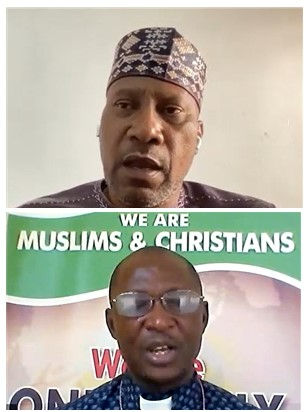
Above: Danjuma Dawop; below: Rev. Joseph Hayab
“The opponent is not an enemy,” Rev. Hayab said. “When youth are politically educated, politically sensitized, politically enlightened, the challenges we see now will no longer disrupt the process. Because they are not educated youth are seen as useful only during a campaign, or when casting a vote, only useful when instigating political violence, and then they will be irrelevant again.
“Look at football, whether it is African competition, World Cup, or European league—youth are always watching the games. And there is discipline in the game, there is love in the game, there is friendship in the game. After the game there is congratulations, and there are also umpires who enforce the rules. This applies to our political process.”
“There was a social media post that went viral in Nigeria: a man went to a bookstore and picked up a book but was holding a gun. But he had to put the gun down to read the book, with a caption, ‘if you read, you will drop the gun.’ So enlightenment and education will persuade the youth to ‘drop the gun,’ to stop becoming the boys of political godfathers and see politics as a contest.”
The forum was the first session in a two-day Peacesharing Forum: Uplifting Youth Engagement for Building Peace, co-sponsored by Co-operation Ireland. Find more information on Global Peace Foundation efforts to mitigate election-related violence and other peacebuilding work in Kenya and Nigeria.

